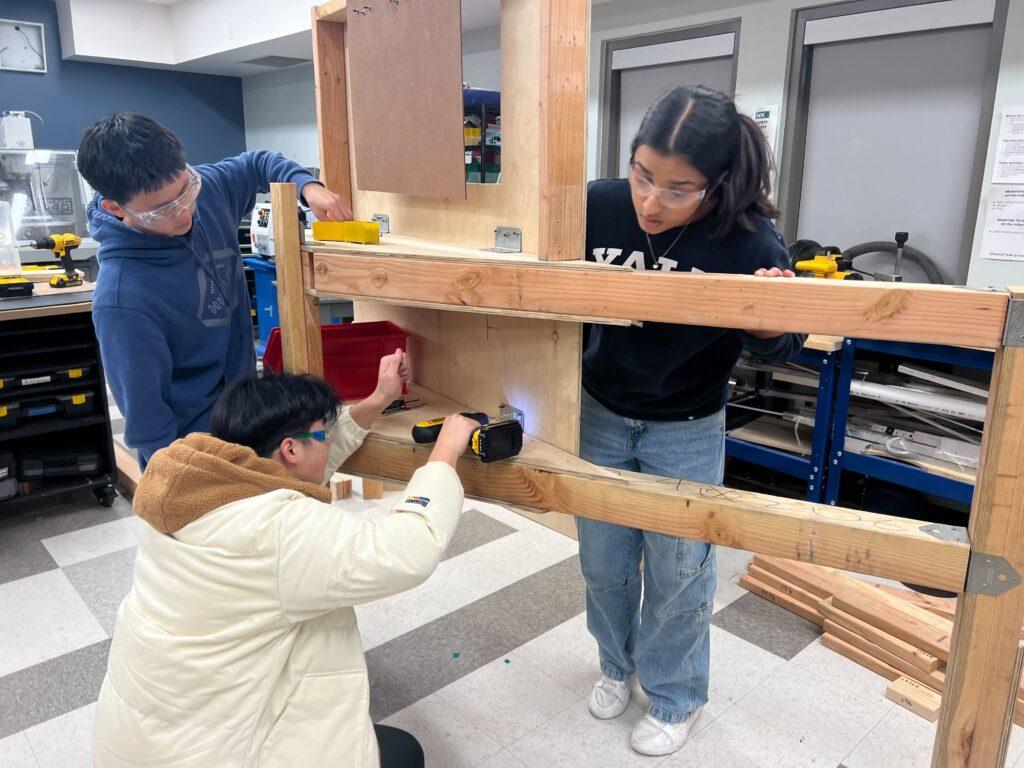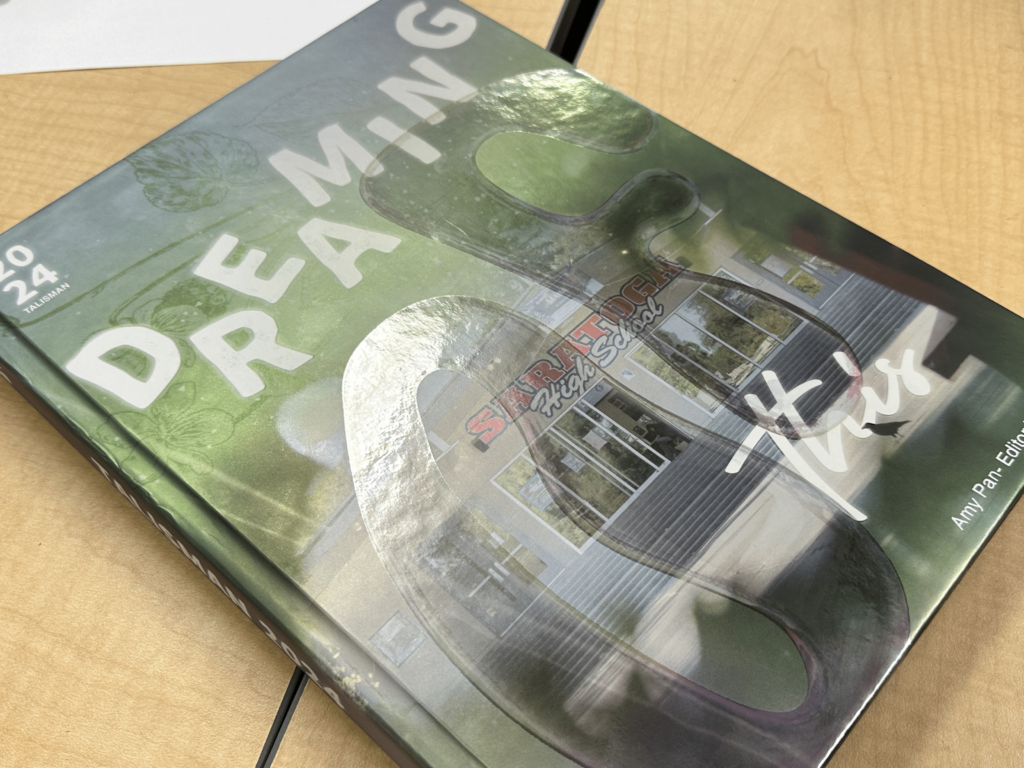As the second semester opens, robotics teams have started or resumed activities for this spring season. Multiple programs are each at different points in their respective seasons: VEX and FTC teams have started redesigning their robots to stay competitive. Meanwhile, FRC has begun building its robot in preparation for the newly revealed game theme of “Crescendo.”
Season kickoff: FRC Team 649 MSET Fish
Unlike the VEX and FTC teams, all of which have already attended multiple tournaments, students participating in FRC have just kicked off their season. This year’s music and art-themed robotics challenge, Crescendo, was revealed on Jan. 6 and details a game of scoring rings in different slots located across the field. These slots can be the “speaker,” the “trap” or the “amp,” each of which provide opportunities in game strategy to score bonus points.
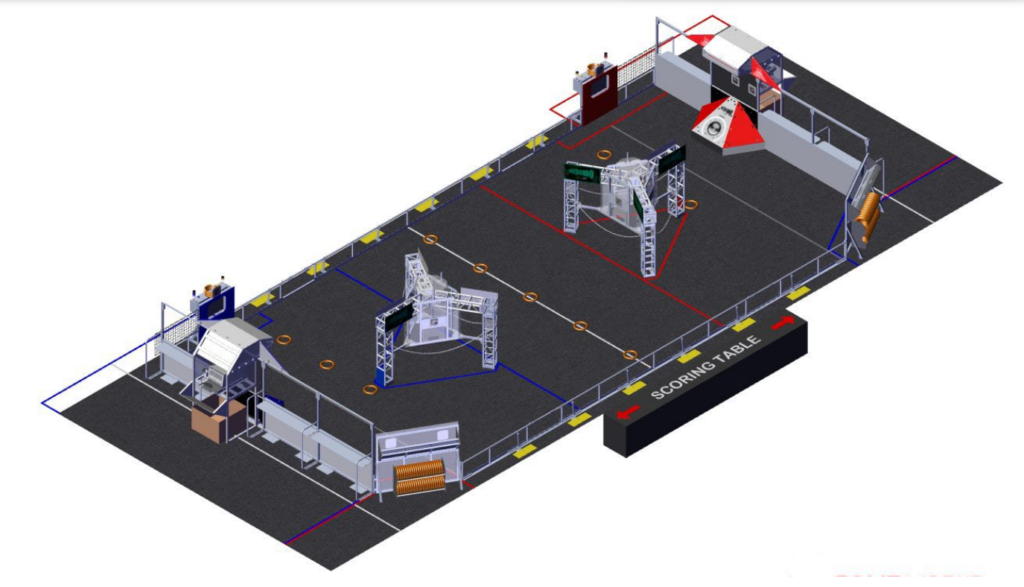
Courtesy of FIRST Inspires
The game field for this season’s FRC game, “Crescendo,” contains various structures for scoring rings.
Within the whole team of 49 members, various subteams work to perfect different aspects of the robot throughout the creation process.
Senior FRC Program Lead Cameron Nguyen said the process starts with prototyping, which usually takes around two weeks. Afterward, the manufacturing team makes various parts of the robot. The robot is then assembled in two to three weeks and sent to the software team to “breathe life into it.” The entire design and building process for a first iteration of the robot usually takes a month, Nguyen said.
So far, the team is working to finalize each component’s design and package the separate parts together.
“We have had designs for each of our components in mind, and a lot of [mechanisms] have been prototyped,” Nguyen said. “Now it’s on to how it will all fit into one robot.”
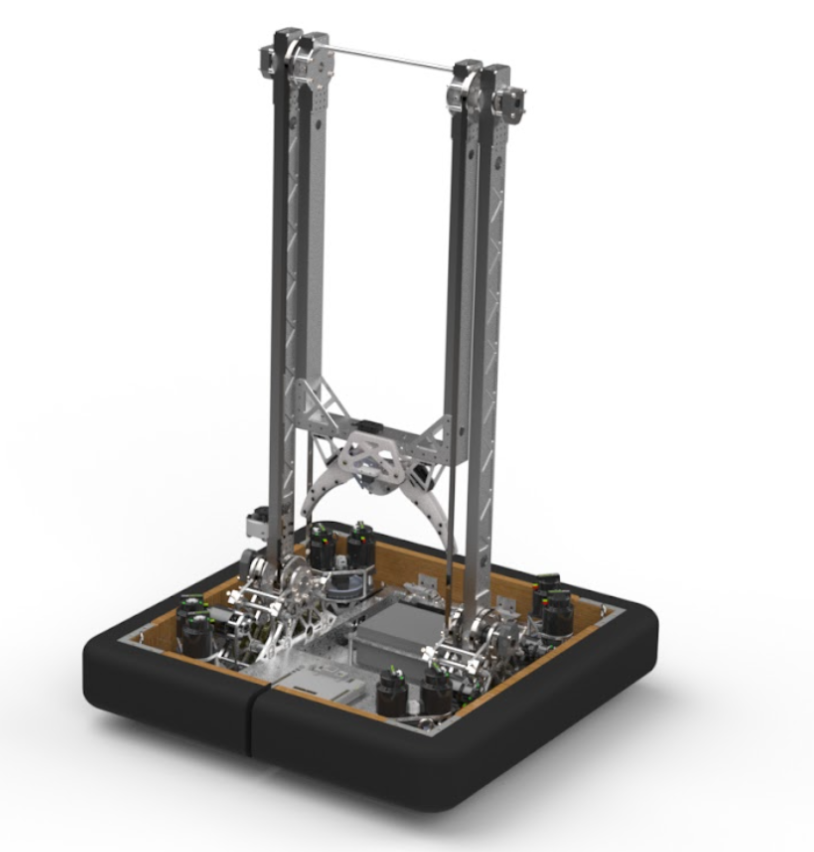
Courtesy of MSET FRC
FRC’s robot from the 2023 season, “Charged Up”
Since elements of the game call for different ways of scoring the rings, there are more subsystems for this year than in past years. Last season, the hardware team consisted of subsystems for the drivetrain, intake, arm and bumpers. Instead of having an arm this year, additional subteams are dedicated to designing and fabricating mechanisms that will allow the robot to shoot rings into the speaker, climb on to a chain and score rings past a trapdoor or into the amp.
Nguyen said offseason activities have helped prepare student leads and rookie members for the challenges. For example, all members on the manufacturing team were trained and certified in machining tools, which had not been the case in previous years. This meant the manufacturing team constructed the field structures in a short amount of time.
“By almost every metric, this past offseason was better than previous years because we had higher student engagement and more learning amongst all of the students, especially the underclassmen,” Nguyen said.
This change in mindset during the offseason stemmed from shifting the teams’ focus from perfecting the robot to fostering collaboration and building the next generation of students.
“This year, we’ve really put a lot of emphasis on giving people more work to do and trying to meet them at their skill level so they can learn and grow,” Nguyen said.
Through scaled-down offseason projects, both hardware and software teams have familiarized rookie students to avoid a steep learning curve. The team will have its first competition the second week of March, with two additional competitions lined up three weeks later in the season to allow for changes between competitions.
“I have high hopes for our success on all fronts, and I think our robot is going to do really well this season,” Nguyen said. “And most importantly, I think everyone is going to feel that they contributed in their own way this season.”
VEX and FTC teams prepare for upcoming tournaments
The school’s VEX teams hosted and competed in a tournament on Jan. 7. According to RobotEvents, veteran team 95071X ranked 6th among 56 teams and advanced into elimination rounds, losing the semi-finals by six points. Their sister team 95071V received the Design Award, given to teams that have a clear documentation of their engineering design process and a collective understanding of their robot’s purposeful design through a team interview.
Meanwhile, FTC’s three teams made the most of their holiday break, returning with drastically different robot designs and mechanisms since their previous competition on Dec. 9.
The two rookie teams, Bettafish and Jellyfish, compete within their league for smaller but more frequent competitions. This pushes them to test new strategies and quickly improve or redesign mechanisms after every competition.
Both teams competed on Jan. 13 at Del Mar High School. According to Bettafish member Eric Woo-Shem and Jellyfish member Alec Guan, their respective teams ranked 5th and 6th out of 16 teams. They will compete again on Feb. 10 at the league finals, which will determine their qualification for the state regional.
Unlike their sister teams, veteran FTC team Cuttlefish competes in the qualifier system, which hosts bigger, full-day tournaments that invite the best-performing teams to advance to the state regional.
Ranking 1st out of 26 teams at the Dec. 17 tournament, they set a then-world record with their alliance partner Team 11039 Innov8rz from Fremont, becoming the first alliance this season to score 300 points, and still (as of Jan. 25) the highest score in California. While the highest possible score ranges from 600 to 900 points, most teams score around 50-200 points.
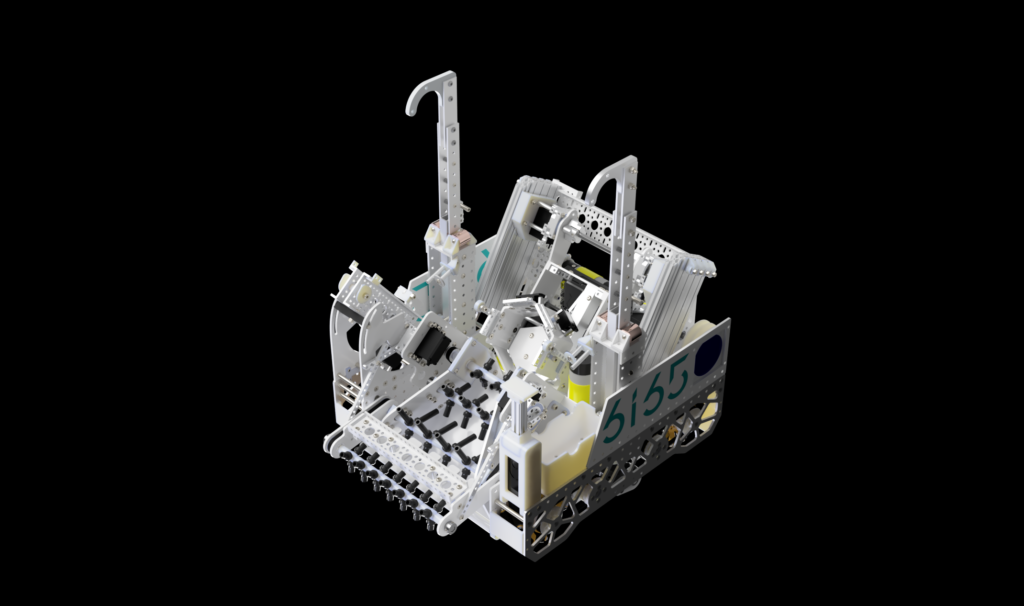
Courtesy of MSET Cuttlefish
Cuttlefish’s robot design at the Dec. 17 tournament
After making major design changes to improve the robot’s speed and accuracy over the winter break, the Cuttlefish hoped to achieve more optimized gameplay at their next tournament on Jan. 27 at Roseville High School. Due to printing deadlines, the Falcon could not report on the game.


























